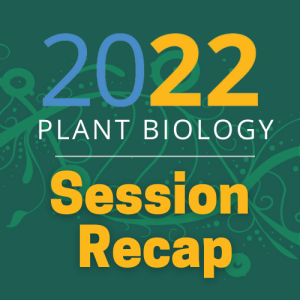By Sarah Courbier, PhD
Each year, 10% to 30% of crops are lost to pathogens and pests worldwide, and these losses are only increasing with climate change. To maintain food security, it is crucial to fully understand how plants detect and respond to pathogen infections. Pioneering work from Jones and Dangl (2006) have shed light on the true arm-race between plant and pathogens by introducing the idea of the “zig-zag model of the plant immune system.” Initially, plants recognize pathogen-specific features called Pathogen-Associated Molecular Patterns (PAMP) to activate immune responses, a process known as PAMP-Triggered Immunity (PTI). Through evolution, pathogens developed the ability to secrete effector proteins interfering with the classical PTI response to successfully colonize plants. In parallel, plants have learned to recognize these effector proteins resulting in the establishment of the Effector-Triggered Immunity (ETI). Although many studies contributed to decrypting the plant immune system, the downstream immunity mechanisms remain extremely complex and rather difficult to fully unravel. The CSPB/SCBV President’s Plenary session “Interacting and Tangled Plant Immune Pathways,” presented July 10 at Plant Biology 2022 familiarized us with the latest advances in the plant-microbe interaction field, state-of-the-art techniques, and unexplored aspects of plant immunity.
During the plenary session, we learned about novel regulators of PTI and ETI involving calcium fluxes by Dr. Kevin Ao (University of Vancouver) and Prof. Keiko Yoshioka (University of Toronto). Calcium fluxes were very recently shown to be essential for the onset of PTI and ETI, resistosome establishment, and downstream plant immune responses. However, calcium fluxes and channels in plants are tricky to study. Based on mutant analysis and elaborate biochemistry techniques, Prof. Yoshioka showed that Cyclic Nucleotide-Gated Channels are likely to be at the nexus of plant immunity and more is yet to be explored.
In addition to advances on the interaction between PTI and ETI responses, we heard about exciting aspects of abiotic stress resistance and the trade-off between growth and defense. Prof. Adam Mott from the University of Toronto – Scarborough has recently discovered Natural Antisense Transcripts (NATs), which are long non-coding RNAs potentially involved in regulating plant immune responses. Prof. Mott elegantly showed through amazing artwork that NATs are transcripts originating from the antisense strand of the gene they regulate. As some NATs associate with receptors typically involved in pathogen detection at the plasma membrane, these NATs could help create new engineering methods for breeding more resilient crop plants to (a)biotic stresses. His inspiring work opens novel and exciting perspectives to study not only defense regulatory pathways but also interactions between growth and defense regulatory mechanisms. The session concluded with a great talk by Prof. Robin Cameron, Chair and current President of the Canadian Society of Plant Biologists. Prof. Cameron gave a wonderful overview of her work on studying factors that allow older plants to be more resilient to stress. Through transcriptomics and elegant physiological experiments, Prof. Cameron is getting closer to understanding which defense and developmental components may explain age-related resistance in plants.
Overall, even though PTI and ETI are more connected and tangled than previously thought, the excellent science presented during the session highlighted innovative technologies and novel perspectives that clearly advance our understanding of how plant immunity works.


___________________
Sarah Courbier is a postdoc studying how to optimize lettuce and basil growth/nutritional value in vertical farming systems with Prof. Leo Marcelis and Dr. Sander van Delden at Wageningen University & Research in the Netherlands. She is also an Assistant Features Editor for Plant Physiology. Read her first-author profile on Plantae.

